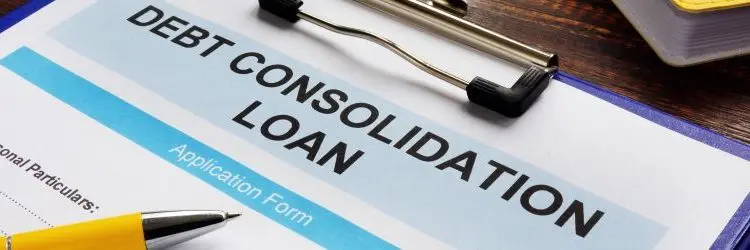Managing multiple debts can be overwhelming, especially when you’re juggling different due dates, interest rates, and payment amounts. If you’re struggling with high-interest credit cards, personal loans, or medical bills, a debt consolidation loan might be the solution you need. This financial strategy allows you to combine several debts into one loan, often with a lower interest rate, making it easier to manage your payments and potentially saving you money in the long run. In this article, we’ll break down how debt consolidation loans work, the benefits they offer, and how you can use them to get your finances back on track. A debt consolidation loan is a type of personal loan used to combine multiple debts into one loan with a single monthly payment. It allows you to pay off several creditors at once and consolidate those debts into a new loan, typically with a lower interest rate. The goal is to simplify your finances and reduce the amount of interest you pay on outstanding balances. For example, if you have several high-interest credit cards or loans, you might take out a debt consolidation loan to pay off those balances. Afterward, you’ll only need to make one monthly payment to the lender who provided the consolidation loan, rather than juggling multiple payments to various creditors. When you apply for a debt consolidation loan, you’re essentially borrowing a set amount of money to pay off your existing debts. The new loan typically has a fixed interest rate and a repayment period, which could range from a few years to several years depending on the loan terms. Here’s how the process typically works: 1. Simplifies Your Payments The most obvious benefit of a debt consolidation loan is the convenience of having only one payment to manage each month. Instead of keeping track of multiple due dates and payment amounts, you’ll make a single, consistent payment. This can reduce the mental and emotional stress that comes with managing multiple debts. 2. Lower Interest Rates Debt consolidation loans often come with lower interest rates than credit cards or payday loans, especially if you have good credit. If your existing debts carry high interest rates, consolidating them with a loan offering a lower rate can save you money over time. For example, consolidating credit card debt with an interest rate of 20% or more into a loan with a rate of 10% can make a significant difference in how much you’ll pay in interest. 3. Potential for Improved Credit Score By consolidating your debts into one loan, you may improve your credit score in the long run. This is especially true if you’ve been struggling to make timely payments on your existing debts. A debt consolidation loan can help you reduce your credit utilization ratio and make your payments more manageable. Additionally, making timely payments on the consolidation loan can help rebuild your credit. 4. Fixed Payment Schedule Debt consolidation loans often come with a fixed payment schedule, meaning you’ll know exactly how much you owe each month and for how long. This can help you plan your budget more effectively and ensure that you’re not caught off guard by fluctuating payments or hidden fees. The predictability of a fixed-rate loan can provide peace of mind and make it easier to stay on track with your payments. 5. Possibility of Lower Monthly Payments In some cases, debt consolidation loans offer longer repayment terms, which can lower your monthly payment amount. While this can give you more breathing room in your budget, it’s important to balance this benefit with the possibility of paying more in interest over the life of the loan. Even if your monthly payments are lower, be sure to review the overall cost of the loan before deciding to proceed. A debt consolidation loan can be a great option for individuals who: To qualify for a debt consolidation loan, you typically need to meet certain criteria, including: Lenders may also ask for other documentation, such as proof of identity, employment history, and existing debts. While debt consolidation loans offer many benefits, they may not be suitable for everyone. Here are a few things to keep in mind before proceeding: A debt consolidation loan can be a powerful tool for simplifying your finances, reducing interest rates, and ultimately saving money. By consolidating multiple debts into one manageable loan, you can reduce stress, stay on top of payments, and improve your credit score. However, it’s important to fully understand the terms of the loan, and to make sure you can handle the repayment schedule. If you’re considering a debt consolidation loan, do your research, compare options, and ensure that it’s the right solution for your financial situation.What is a Debt Consolidation Loan?
How Does a Debt Consolidation Loan Work?
Benefits of Debt Consolidation Loans
Who Should Consider a Debt Consolidation Loan?
How to Qualify for a Debt Consolidation Loan
Drawbacks to Consider
Conclusion
How a Debt Consolidation Loan Can Simplify Your Finances and Save You Money
A debt consolidation loan can be a powerful tool to help you manage multiple debts by combining them into one manageable payment. This article explains how debt consolidation works, its benefits, and how it can save you money while simplifying your finances.

